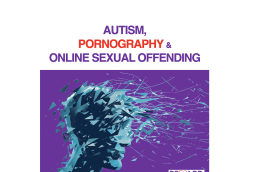The Reward Foundation were pleased to have the opportunity to speak on sex abuse at the “Online Safety for Children and Young People” conference hosted by Holyrood Events in Edinburgh in October this year.
The event drew senior policy makers from the Scottish Government, Crown Office and Police Scotland as well as many teachers. Our talk presented the latest research on how internet pornography is impacting on the brains of adolescents and driving offending behaviour in some. We also set out a prevention model and signposted routes to recovery.
The latest neuroscience research reveals that excessive use of internet pornography, especially amongst adolescents, can cause the same brain changes seen in the brains of those addicted to substances, such as cocaine and alcohol. This is happening to children whether or not they have had a chaotic home life or a history of abuse or trauma. Further the brain changes are seen in those who have not yet developed a full blown addiction.
In the process of addiction, habituation and tolerance build up and a user needs more of the substance or behaviour to experience a ‘hit’. With substances a user needs more of the same, but with internet pornography, the user needs new and different to feel stimulated.
Compulsive porn users often describe escalation in their porn use that takes the form of greater time viewing or seeking out new genres of porn. New genres that induce shock, surprise, violation of expectations or even anxiety can function to increase sexual arousal, and in porn users whose response to stimuli is growing blunted due to overuse, this phenomenon is extremely common. Escalation can lead to searching for illegal sites such as those containing sexual abuse of children. Recent research shows that escalation is reported in about 49% of cases. Tamer versions of pornography, or ‘plain vanilla’, no longer provide heavy users with enough stimulation to create arousal.
Also adolescent brains, because of their unique properties, produce more of, and are more sensitive to the go-get-it neurochemical dopamine that drives addiction. It also means teens are better able to stand videos that would shock and disgust adults or children.
Given the sharp rise in sex crime amongst adolescents towards pre-adolescents, we need to think carefully about prevention. The adolescent brain is the most susceptible to addiction because of its extreme malleability or plasticity as it seeks to learn new skills for adulthood. At puberty learning about sex becomes the number one priority. Internet pornography and widespread possession of smartphones makes access easy to all kinds of sexual content including extreme material without restriction.
A senior police officer from CEOP (Child Exploitation & Online Protection) was very interested in the Reward Foundation’s approach and would like to invite us to discuss our work further with their training team. We were also delighted to meet with a senior member from Young Scot who would like collaborate with us and provide some of their young people to help us co-develop our teen website.




